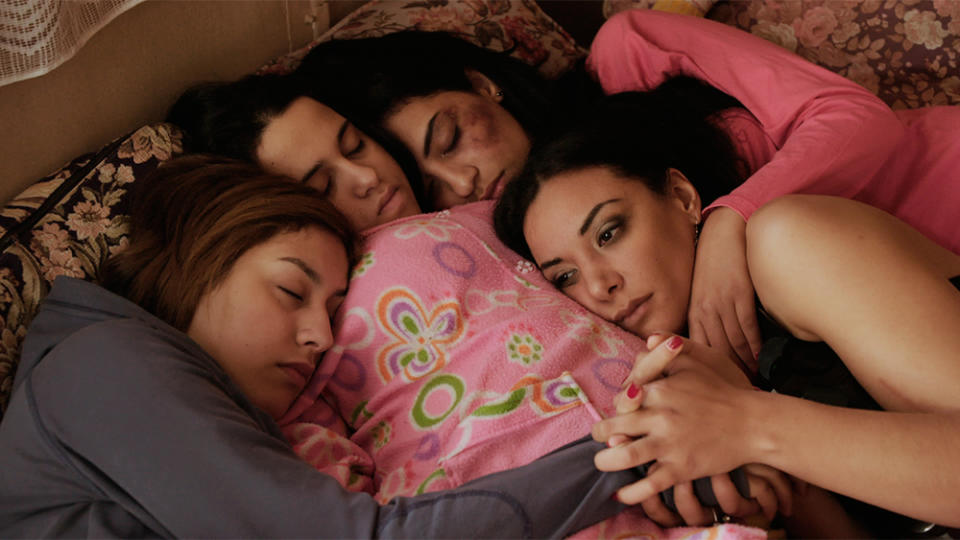Cannes Film Review: ‘Much Loved’

Nabil Ayouch (“Horses of God”) is no stranger to controversy, so he must have realized the outcry bound to follow “Much Loved,” a remarkably frank if unoriginal take (to international arthouse eyes) on prostitution in Marrakech. Outcry there has been, with Moroccan sites abuzz with talk of scandal and, immediately post-Cannes, government word that the film is banned from Moroccan screens. As usual with such things, the storm will overshadow the movie, which pushes the envelope yet says nothing new about how prostitutes, and women in general, are treated in the Kingdom. Francophone screens will benefit from the brouhaha, with fests likely to program out of solidarity.
So intense is the reaction at home that Ayouch’s French Wikipedia page was taken down following scurrilous postings, and lead actress Loubna Abidar has received death threats. Given the ever-increasing polarization in the region, and the disturbing way officials seek to mollify conservative fundamentalists who are all too quick to fire off violent invective, such reactions could hardly be surprising given the pic’s unblinkered gaze at hypocrisy, the female body and Sapphic love. The big question — and surely the one Ayouch is most interested in — is will the condemnation lead to open dialogue in the public sector, or will discussion be quashed? Whatever the answer, “Much Loved” will certainly be much downloaded at home.
Noha (Abidar) is the queen bitch in her circle of upmarket whores, consisting of Soukaina (Halima Karaouane) and Randa (Asmaa Lazrak). With driver/protector Said (Abdellah Didane) in tow, they spend a lucrative night at a villa rented by a bunch of Saudi guys and filled to the brim with hookers. While Noha provocatively flaunts herself and earns her keep, Ahmed (Danny Boushebel) takes a shine to Soukaina, who feels she’s hit paydirt since the guy can’t get it up and instead reads her poetry.
When not plying her trade, Noha dons a hijab and formless dress to visit her mother, who looks after Noha’s young son; though censorious, the mother greedily takes whatever money her daughter gives, symbolizing a two-faced society happy to profit from the sex trade while treating its workers like garbage. This sort of hypocrisy turns up regularly in “Much Loved,” as with the character of Amine (Amine Ennaji), a nasty cop willing to overlook Noha’s profession as long as he gets some action.
Being on the margins makes the ladies of the night more open to other outsiders, such as transgender colleagues they party with from time to time. Not that the women are free from their own homophobia, although Randa’s lesbian side is looked on with teasing acceptance. Unfortunately, Ayouch doesn’t bother giving Randa a backstory, even though she’s the character most in need of one, since she’s a lousy hooker and is temperamentally ill suited as novice to Noha’s mentor (the credits list “Randa’s mother” but she must have landed on the cutting-room floor). Also weak is the sudden introduction of Hlima (Sara Elmhamdi Elalaoui), a two-bit streetwalker from the stix in woolen long johns, taken on as a sort of mascot by the three women.
Such underdevelopment contrasts with overdevelopment in other areas, including a few too many party scenes. Noha’s well-worn volatility is a stereotype of the hard-as-nails prostitute (throwing in the kid only furthers the cliche), and the screaming matches between the women grow tiresome. However, the cast’s remarkable bravery cannot be overstated, and the actresses are potent conveyors of the film’s message countering the establishment’s pietism. Ayouch isn’t the only Moroccan helmer toying with how far he can go — Narjiss Nejjar and Hicham Lasri come to mind — yet he’s certainly thrown down the gauntlet, incorporating vulgar language and gestures, glimpsed breasts and sex scenes: Despite their authenticity, it’s no surprise thin-skinned dissemblers are accusing the production of defaming Morocco and Moroccan womanhood.
The production has a considerably more sensual quality than Ayouch’s recent work, and lensing by Virginie Surdej plays up the whole concept of the male gaze as these women shake their thing(s). Editing is solid, and music is well interpolated.
Related stories
Music Box Acquires Pablo Larrain's 'The Club'
Cannes Film Review: 'Yakuza Apocalypse: The Great War of the Underworld'
Cannes: Critics Rate the 2015 Competition
Get more from Variety and Variety411: Follow us on Twitter, Facebook, Newsletter

 Yahoo Movies
Yahoo Movies 